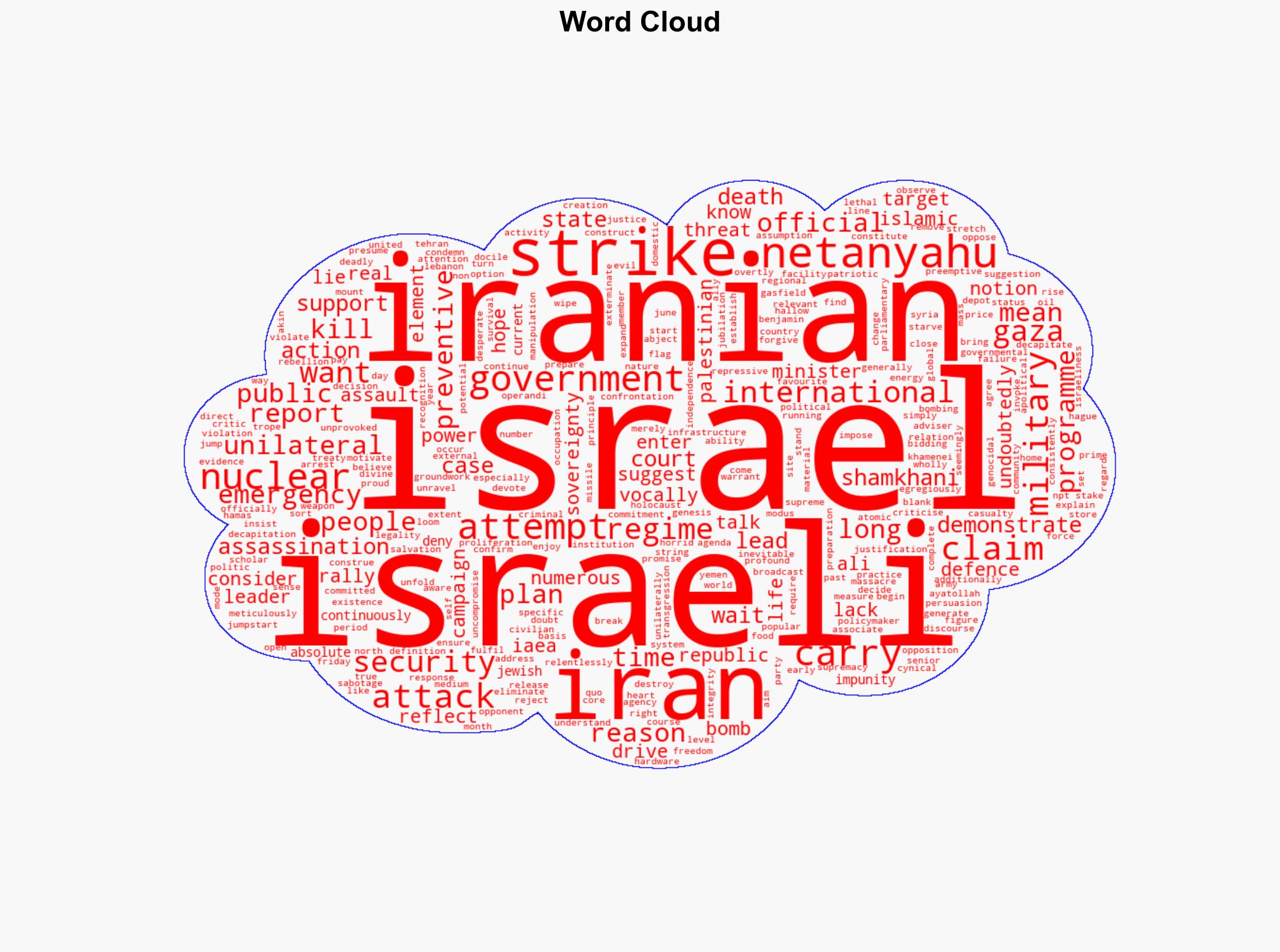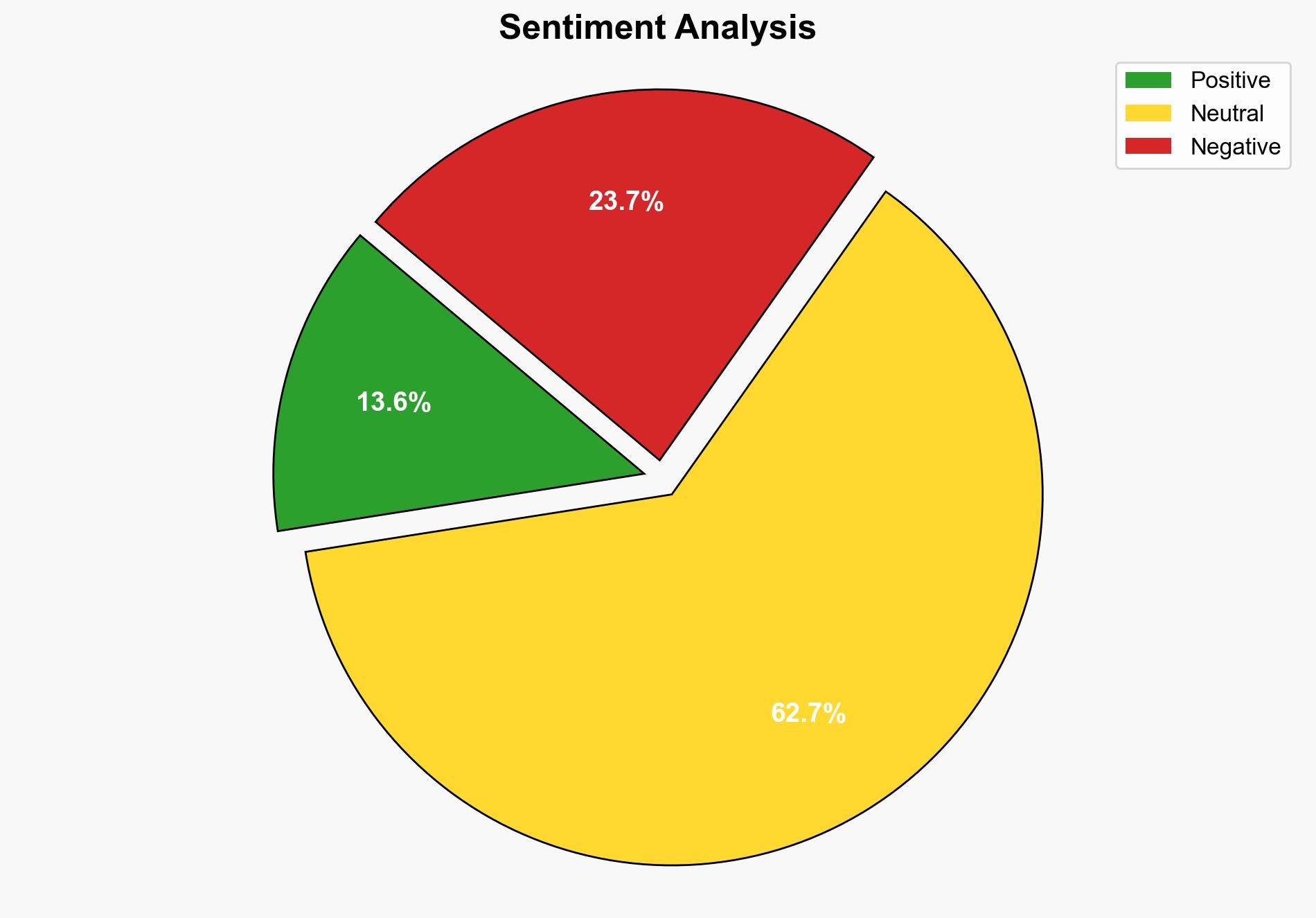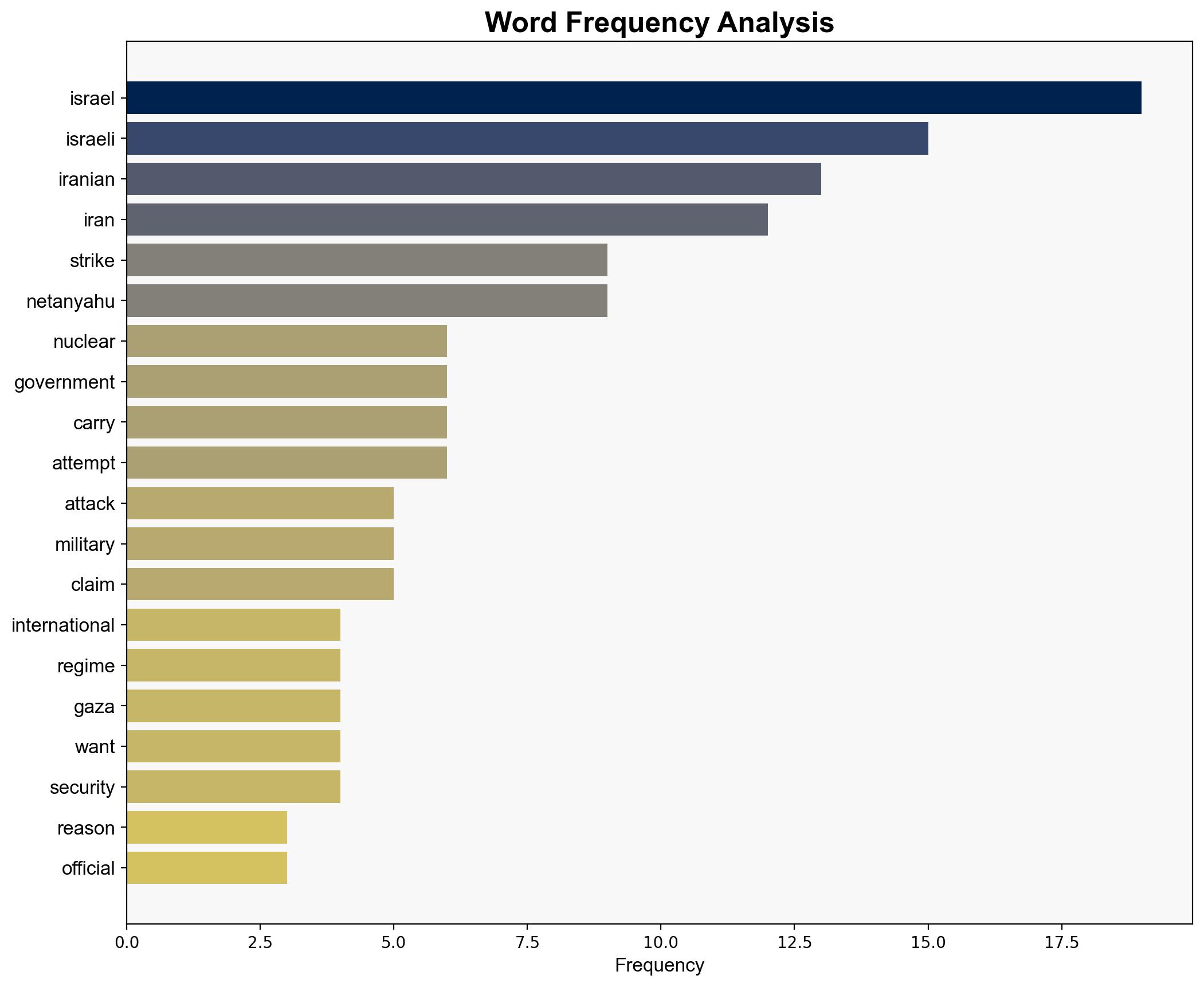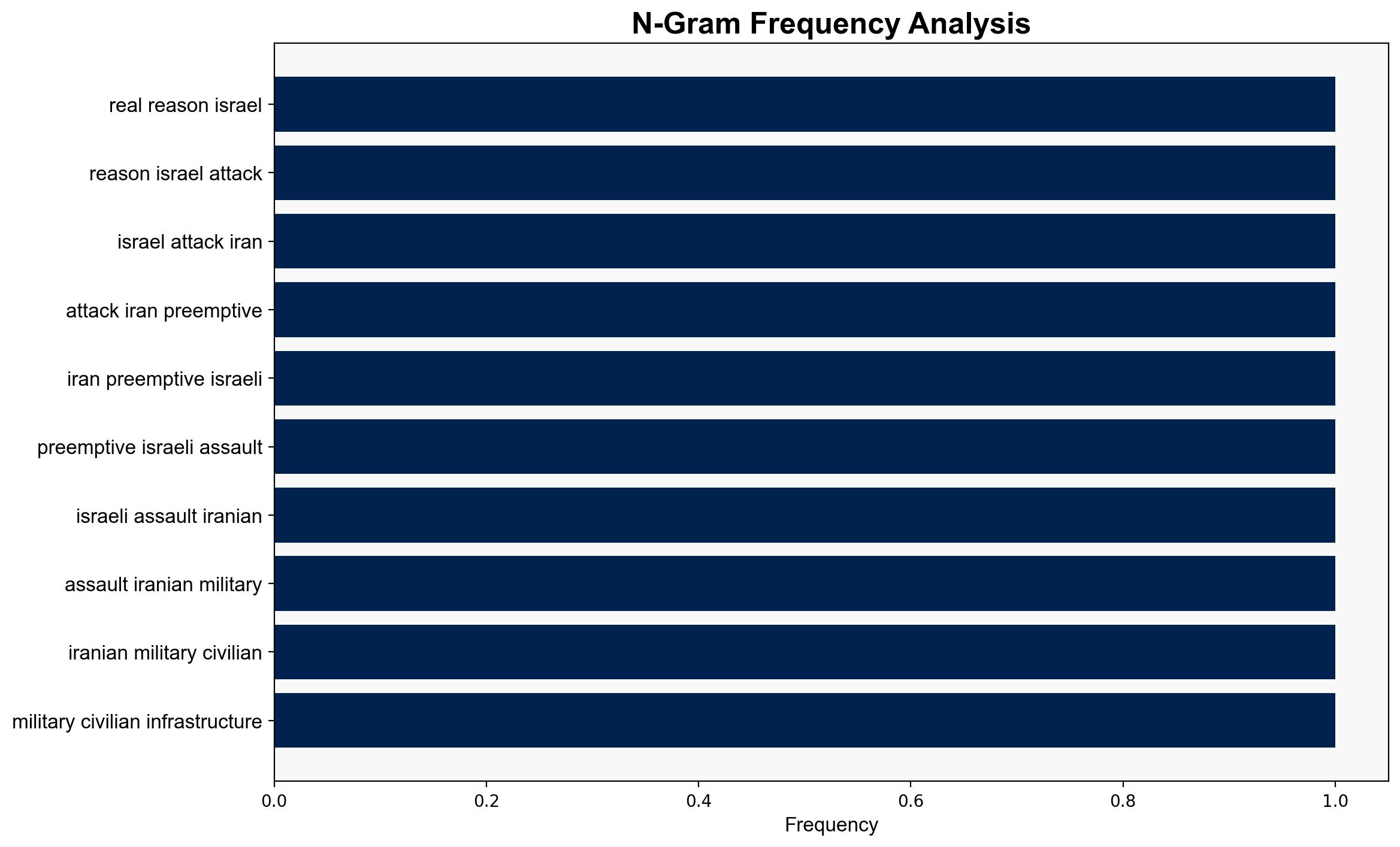The real reason Israel attacked Iran – Al Jazeera English
Published on: 2025-06-15
Intelligence Report: The real reason Israel attacked Iran – Al Jazeera English
1. BLUF (Bottom Line Up Front)
The recent Israeli attack on Iran appears to be a preemptive strike aimed at disrupting Iran’s nuclear capabilities and potentially inciting regime change. Despite official claims of self-defense and addressing nuclear threats, the attack seems strategically planned to destabilize Iran’s military and political infrastructure. The implications of this action could escalate regional tensions and provoke retaliatory measures from Iran, affecting global security dynamics.
2. Detailed Analysis
The following structured analytic techniques have been applied to ensure methodological consistency:
Causal Layered Analysis (CLA)
Surface events indicate a direct military confrontation with significant casualties. Systemic structures reveal a pattern of targeted strikes on military and governmental assets, suggesting a broader strategy beyond mere defense. Worldviews reflect Israel’s perception of an existential threat from Iran’s nuclear ambitions. Myths underpinning these actions include the belief in preemptive measures as necessary for national survival.
Cross-Impact Simulation
The attack could trigger a series of retaliatory actions from Iran, potentially involving proxy forces in neighboring regions. Economic dependencies, particularly in the energy sector, might be disrupted, affecting global markets. Diplomatic relations with key international players could also be strained, influencing broader geopolitical alliances.
Scenario Generation
Divergent narratives include a scenario where Iran accelerates its nuclear program in response, increasing regional instability. Alternatively, diplomatic interventions could de-escalate tensions, leading to renewed negotiations. A worst-case scenario involves a broader military conflict drawing in regional and global powers.
3. Implications and Strategic Risks
The attack highlights vulnerabilities in regional security frameworks and the potential for escalation into a wider conflict. Cyber threats may increase as both nations leverage digital warfare capabilities. Economically, disruptions in oil supply chains could have global repercussions. Politically, the attack may embolden hardline elements within Iran, complicating future diplomatic efforts.
4. Recommendations and Outlook
- Encourage diplomatic engagement with regional stakeholders to de-escalate tensions and prevent further military actions.
- Enhance cybersecurity measures to protect critical infrastructure from potential retaliatory cyberattacks.
- Monitor economic indicators for signs of market instability and prepare contingency plans for energy supply disruptions.
- Scenario-based projections: Best case – Diplomatic resolution and renewed negotiations; Worst case – Escalation into a broader conflict; Most likely – Continued low-intensity skirmishes and diplomatic stalemate.
5. Key Individuals and Entities
Ali Shamkhani, Benjamin Netanyahu, Ayatollah Ali Khamenei
6. Thematic Tags
national security threats, cybersecurity, counter-terrorism, regional focus




